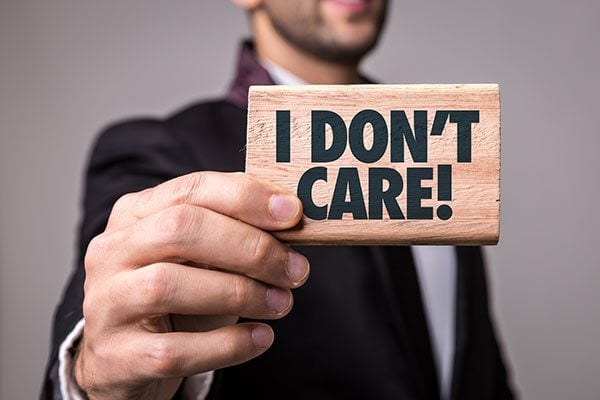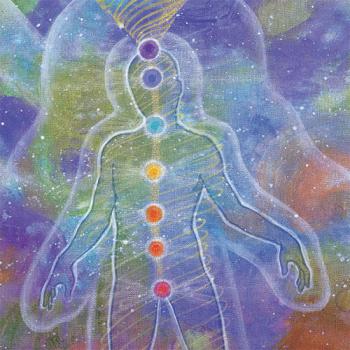
“I don’t care.” People say this a lot these days. You could say that we are living in an “I don’t care” society. Oftentimes, saying this phrase is a good thing, perhaps indicating that the person is unattached to the outcome in any given situation. Or, it can show a willingness to go with the flow of a situation and to just enjoy things as they arise. “Where do you want to go to dinner tonight?” “I don’t care.”
But the phrase is not always so positive. Sometimes, it comes from indifference and apathy toward ourselves and toward people around the world. It is a direct statement of absence of concern, compassion, and empathy. That, of course, is not a healthy state of being, one that shows the heart is closed and disconnected. Sometimes we don’t even have to say “I don’t care” out loud; it is implicit in our lack of attention and lack of action.
Unfortunately, “I don’t care” is like an agreement with everything in our lives and in the world, exactly as they are today, with no dream or intention for something better. At best, this will result in stagnation—everything staying about the same as it is—or it could lead to something even worse than before.
The latter is, in fact, more likely due to the law of entropy, which states that, without deliberate input of energy, everything will decline toward chaos or degradation. It is not unlike owning a car. If you say, “I don’t care about my car,” it will become dirty and scratched up and will eventually stop running. But if you care enough, you will change the oil and get tune-up, and you will keep it clean on the inside and out. If you care, it will last for many years, maybe even decades, but, if not, it will be in the junkyard within a couple of years.
Too many people are treating our world like a neglected automobile, acting like it should just take care of itself. But that is not how it works. We as humans have great effect on the quality of life that other humans experience, and we can have ruinous effect on the planet’s ecosystems if we just do as we please with no sense of responsibility. The same is true of our own bodies; without care we simply decline. We must care about ourselves; we must care about others; we should care about our planet.
Perhaps there was once a time when we could be carefree; maybe we could just let government and other leaders take care of things. We could be like children who rely entirely on others. But that time is now passed, and we now must grow up. We all individually must take responsibility. The pressing problems of today’s world can’t be solved by governments, institutions, new rules, or technologies alone.
I call people’s apathy and indifference the “I don’t care” syndrome. It is a state of small-heartedness wherein people only care about their day-to-day routine. They read the headlines and hear about the condition of the planet, but they don’t care because they only want to think about their individual career and family responsibilities. Everyone is becoming busier and busier attending to the comforts for their own families, so who has time for all those “big” issues? The problem is that this pattern cannot last forever. Eventually, those “big” problems will encroach into everyone’s little individualized bubble.
So, how can people escape the “I don’t care” syndrome? It begins with simple self-observation. If you are honest, what are the issues of life that you have shuffled off to the side, the ones that you know are important, but that you have habitually ignored because you think you are too busy or have no power to effect change? Wherever you have done this, you have been affected by “I don’t care syndrome.”
Once you have recognized how you have been affected by “I don’t care” syndrome, you can then deliberately begin to care again. You can think to yourself, “I do care about the planet” or “I do care that people are suffering.” Just this thought alone can begin to change the energy from apathetic to compassionate.
But change can never happen through thought alone. Positive action must follow positive thought, or it will have little actual effect in the world. So, make a plan to effect some real change in the world. Start with a vision of the world as you would like it to be, and then make a specific plan about what you would like to do. If you listen to your heart, that vision will easily become evident.
Gandhi is famous for saying, “Be the change you would like to see in the world.” That change begins by changing “I don’t care” thinking to “I care” thinking.
















